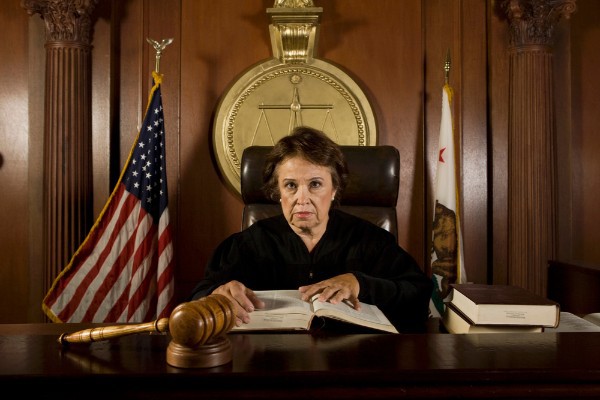What Happens During a Typical Arraignment?

During a typical arraignment, a person arrested for a crime hears the charges against him and enters a plea to the judge. An arraignment happens after the person is arrested. He may spend some time in jail immediately after the arrest, depending on when a judge is available or when the arraignment is scheduled.
During the Arraignment
An arraignment is the first time that someone accused of a crime (called a “defendant”) meets a criminal court judge. This hearing will take place at a courthouse in a courtroom, where the judge sits at the front of the room. There may be many other criminal defendants, lawyers, and family members present in the courtroom, along with bailiffs and other court staff.
The judge will describe the defendant’s legal rights, and the judge or prosecutor will read out the charges against the defendant. Then the judge will ask the defendant how he pleads to each of the charges. The defendant can plead guilty, not guilty, or no contest (nolo contendere). No contest is not an admission of guilt but declares that the defendant will not mount a legal defense.
If the defendant pleads not guilty, which many do, the judge will probably set a bond. The bond might require payment of money (bail) to get the defendant out of jail, or it might be an “own recognizance” bond allowing the defendant to leave jail without paying anything. Then the judge will tell the defendant when to come back to court. The next court date may be several weeks or a month later.
Finally, the defendant should receive an affidavit from court staff or the prosecutor. This “information and probable cause affidavit” should describe what prosecutors believe the defendant did to break the law, and it should cite the legal statute(s) that the prosecutors accuse the defendant of violating.
After the Arraignment
Typically the defendant is taken back to jail after the arraignment. Family members or a lawyer can arrange for payment of bail, or the defendant will be released on his own recognizance. The defendant may have a preliminary hearing coming up if the charge is a felony, or time to prepare the case if the charge is a misdemeanor. Many people use this time to secure legal representation and have their lawyers investigate before deciding whether to negotiate a plea deal or go to trial.
If you are facing DUI charges, seek out an attorney who knows the Oklahoma criminal law system inside and out. Clint Patterson, Esq., of Patterson Law Firm, a former Tulsa prosecutor now using his trial experience and expert-level knowledge of DUI science to defend drivers, has the experience and the insight to evaluate the strengths and weaknesses of your case. To schedule a case evaluation, visit Patterson Law Firm online or call Clint’s office at (918) 550-9175.

